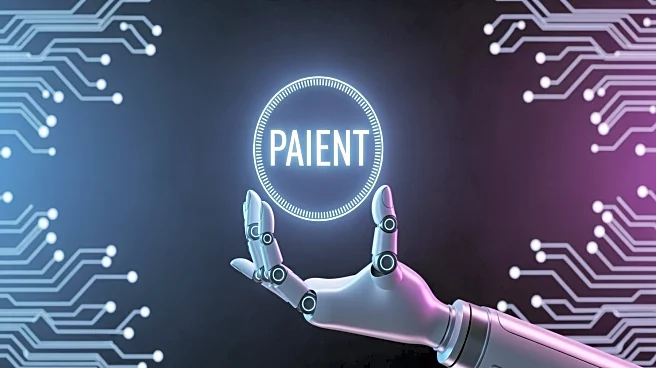What's Happening?
The EU Artificial Intelligence Act, adopted in 2024, is set to reshape patent strategies for companies operating in the AI sector. The Act introduces a tiered, risk-based framework that imposes strict
obligations on high-risk AI systems, including detailed technical documentation requirements. This regulatory environment necessitates informed patent strategies, as disclosures required by the Act could impact patent filings. Companies are advised to integrate patent counsel into compliance planning, prioritize early filings in Europe, and consider mixed protection models to navigate the complexities of the Act.
Why It's Important?
The EU AI Act represents a significant regulatory shift that affects global patent practices, particularly for US companies with exposure to the EU market. The Act's documentation requirements could lead to public disclosures that serve as prior art, potentially jeopardizing patent rights. As a result, companies must align their patent strategies with compliance obligations to protect their intellectual property effectively. This development underscores the importance of proactive patent management and strategic planning in the AI industry, influencing how innovation is documented and safeguarded.
What's Next?
Companies will need to audit their existing patent portfolios for EU exposure and adjust their strategies to comply with the AI Act's requirements. This may involve drafting dual claim sets to accommodate both EU and US market conditions. As the Act's provisions come into effect, businesses will likely face increased scrutiny and potential legal challenges, necessitating robust compliance measures. The evolving regulatory landscape will require ongoing adaptation and collaboration between patent and compliance teams to ensure successful navigation of the AI Act's implications.
Beyond the Headlines
The AI Act's impact extends beyond patent strategy, potentially affecting trade secret protection due to mandatory disclosures. Companies may need to reassess their reliance on trade secrets and consider patenting technologies that cannot be maintained confidentially. Additionally, the Act's focus on transparency and human oversight may influence ethical considerations in AI development, prompting companies to prioritize responsible innovation practices.











